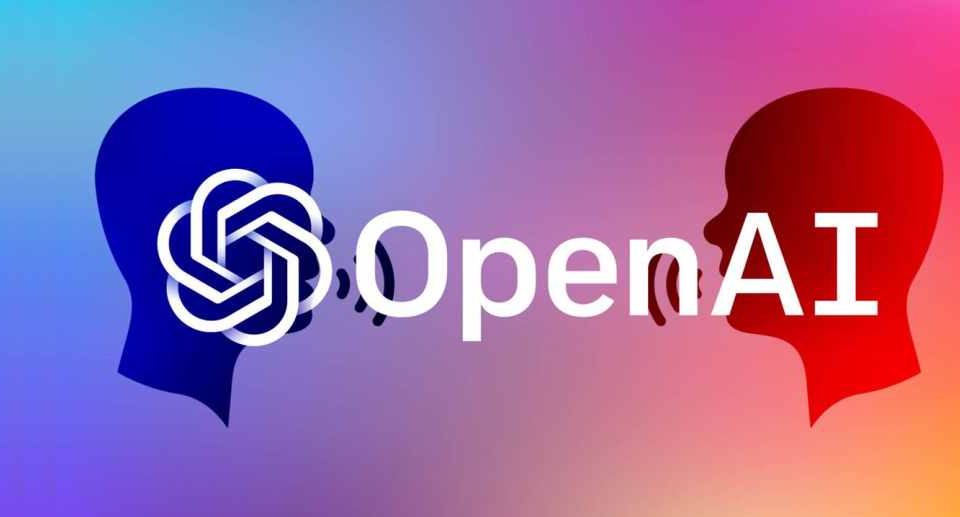FTC Probes OpenAI's ChatGPT: Privacy And Data Concerns

Table of Contents
ChatGPT's Data Collection Practices Under Scrutiny
The FTC's investigation centers on OpenAI's data collection practices and how they align with existing privacy laws. Understanding what data ChatGPT collects is crucial to assessing the potential risks.
What data does ChatGPT collect?
ChatGPT's data collection is extensive, raising concerns about the potential for misuse or unauthorized access. The platform collects:
- User inputs (prompts, conversations): Every interaction with ChatGPT, including prompts and the generated responses, is recorded. This data forms the basis for improving the model's performance.
- Usage data (frequency of use, features accessed): OpenAI tracks how often users interact with ChatGPT and which features they utilize. This allows them to understand user behavior and optimize the platform.
- IP addresses and location data: This data can be used to identify users' geographic location, raising concerns about potential tracking and profiling.
- Potentially sensitive personal information inadvertently included in prompts: Users might unknowingly include sensitive personal information in their prompts, creating risks if this data is not properly protected. This could include names, addresses, medical information, or financial details.
This collected data is primarily used for training and improving the ChatGPT model, making it more accurate and effective. However, the sheer volume and sensitivity of this data are what has triggered the FTC's investigation.
Concerns Regarding Data Security and Breaches
The vast amount of data collected by ChatGPT raises significant data security concerns.
- Potential vulnerabilities in data storage and transmission: Like any online platform, ChatGPT is susceptible to potential security breaches, including hacking and data leaks. The security of OpenAI's servers and data transmission protocols are key elements of the FTC's investigation.
- Risks associated with unauthorized access to sensitive user data: A data breach could expose highly sensitive personal information, leading to identity theft, fraud, or other serious consequences for users.
- Previous data breaches or security incidents: While OpenAI hasn't publicly reported major data breaches related to ChatGPT specifically, the company's history and the security posture of similar large language models are relevant to the FTC's assessment.
- Impact of a data breach on users' privacy and trust: A significant data breach could severely damage user trust in OpenAI and the broader AI industry, potentially hindering the adoption of future AI technologies.
FTC's Focus on Compliance with Existing Privacy Laws
The FTC's investigation will assess whether OpenAI's data practices comply with existing privacy laws and regulations.
Relevant Laws and Regulations
Several laws are relevant to the FTC's investigation, including:
- Children's Online Privacy Protection Act (COPPA): This law regulates the collection of personal information from children under 13. The FTC will likely investigate whether OpenAI has sufficient safeguards to prevent the collection of data from minors.
- California Consumer Privacy Act (CCPA): This law grants California residents specific rights regarding their personal data, including the right to know what data is collected and the right to opt out of data sales.
- General Data Protection Regulation (GDPR): For users outside the US, the GDPR, applicable in the European Union, sets stringent standards for data protection and privacy. OpenAI's compliance with GDPR is another area of potential concern for the FTC.
OpenAI's data practices, particularly regarding the scope of data collection and user consent, will be rigorously examined against these regulations.
FTC's Investigative Powers and Potential Outcomes
The FTC has broad authority to investigate unfair or deceptive trade practices, including those related to data privacy.
- FTC's authority to investigate unfair or deceptive trade practices: The FTC can issue subpoenas, conduct interviews, and demand documents from OpenAI as part of its investigation.
- Potential penalties OpenAI could face: If the FTC finds OpenAI in violation of privacy laws, it could impose significant penalties, including substantial fines or consent decrees requiring OpenAI to change its data practices.
- Impact of the investigation on OpenAI's reputation and future development: A negative outcome in the FTC's investigation could severely damage OpenAI's reputation and potentially hinder its future growth and access to funding.
The Broader Implications for AI and Data Privacy
The FTC's investigation has far-reaching implications for the future of AI and data privacy.
The Need for Clearer AI Regulations
The rapid advancement of AI technologies poses significant challenges for regulators.
- Challenges in regulating AI technologies: The dynamic nature of AI development necessitates a flexible regulatory framework that can adapt to new technologies and potential risks.
- Need for comprehensive data privacy regulations specifically tailored to AI systems: Current privacy laws may not fully address the unique challenges posed by AI systems that collect and process vast amounts of data.
- Ongoing discussions and legislative efforts concerning AI regulation globally: Many countries and international organizations are currently working on developing comprehensive regulations for AI, aiming to balance innovation with the protection of individual rights.
User Awareness and Data Protection
Users need to be aware of the data collected by AI chatbots and take steps to protect their privacy.
- Importance of user awareness: Users should understand what data is collected, how it is used, and what rights they have.
- Reading privacy policies and understanding data rights: Users should take the time to carefully review the privacy policies of AI platforms and understand their rights regarding data access, correction, and deletion.
- Protecting data when using AI platforms: Users can minimize risks by avoiding sharing sensitive personal information in prompts and being mindful of the data they are providing to AI platforms.
Conclusion:
The FTC's investigation into OpenAI's ChatGPT highlights the critical need for robust regulations and greater transparency in the rapidly evolving world of AI. The scrutiny surrounding ChatGPT's data collection and privacy practices underscores the importance of responsible AI development and deployment. The outcome of this investigation will likely shape future regulations and influence how AI companies handle user data. Understanding the privacy implications of using AI tools like ChatGPT is crucial for both users and developers. Stay informed about developments in the FTC's probe into OpenAI's ChatGPT and the broader conversation surrounding AI and data privacy. By remaining vigilant and advocating for strong data protection measures, we can ensure that the benefits of AI are realized without compromising our fundamental right to privacy.

Featured Posts
-
 The Impact Of Music Festivals On London Parks Mark Rylances Perspective
May 19, 2025
The Impact Of Music Festivals On London Parks Mark Rylances Perspective
May 19, 2025 -
 Final Destination Bloodlines A Comprehensive Review Of The New Film
May 19, 2025
Final Destination Bloodlines A Comprehensive Review Of The New Film
May 19, 2025 -
 London Parks Under Siege Mark Rylances Condemnation Of Music Festival Impact
May 19, 2025
London Parks Under Siege Mark Rylances Condemnation Of Music Festival Impact
May 19, 2025 -
 Norways World Cup Qualifying Campaign Starts With A 5 0 Triumph Thanks To Haaland
May 19, 2025
Norways World Cup Qualifying Campaign Starts With A 5 0 Triumph Thanks To Haaland
May 19, 2025 -
 Behind The Glamour The Financial Challenges Faced By Wives Of A List Stars
May 19, 2025
Behind The Glamour The Financial Challenges Faced By Wives Of A List Stars
May 19, 2025
